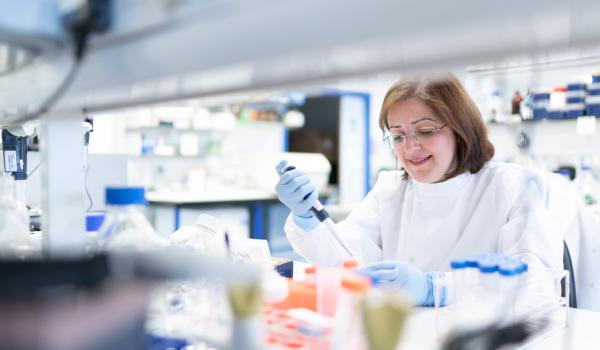FORECEE: Female cancer prediction using cervical omics to individualise screening and prevention
Who can take part
Please note - unless we state otherwise in the summary, you need to talk to your doctor about joining a trial.
You may be able to take part in this clinical trial if you:
- are a member of the public without any specific diagnosis
- are planning to undergo breast or pelvic surgery unrelated to cancer
- have been found to have abnormal cells on your cervix
- have just been diagnosed with either breast, ovarian or endometrial cancer or where the doctor suspects a cancer diagnosis
- have inherited a faulty gene (in BRCA1, BRCA2 or Lynch syndrome genes) that put you at a higher risk of developing one of the female-specific cancers
This is not an exhaustive list. If you're interested in participating in a clinical trial, you should speak to your doctor about what other criteria might apply.
About the trial
The FORECEE (4C) research project is a new major study investigating the risk of breast, ovarian, womb and cervical cancer.
Hormones are known to drive the development of particular diseases in women. Cervical cells are sensitive to the body’s own hormone levels in ways that are similar to the breast and other reproductive organs. This means that cervical cells may contain vital information about a woman’s risk of developing not just cervical disease, but other diseases that are hormone-responsive.
Buccal cells (cells collected from a cheek swab) are very similar to cervical cells but not hormone-sensitive. This means they can be used as ‘control cells’ to compare to the cervical cells.
Finally, blood cells reflect the immune system, which is also important in cancer development.
Studying tissues at risk (breast, ovary, tubes, the womb lining) will allow the research team to design specific preventive measures.
If you take part in this study, you'll need to donate the following samples:
- A blood sample
- A cheek swab
- A cervical smear sample
- Surplus healthy or diseased tissue – if you opt for risk-reducing surgery (that is, removal of both ovaries and tubes, or both breasts) the research team would want to analyse your tissues after the usual tests have been performed.
You'll also be asked to complete a questionnaire that will include questions about:
- your medical, reproductive history and general health
- history of cancer in the family
- any symptoms that you may have experienced
The samples donated are the main focus of the research.



